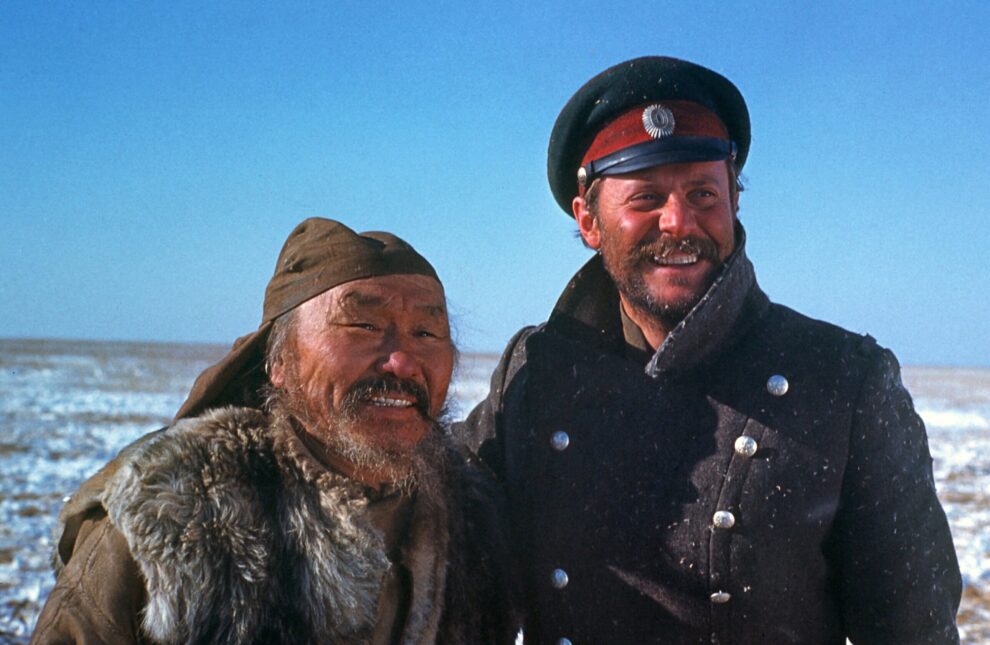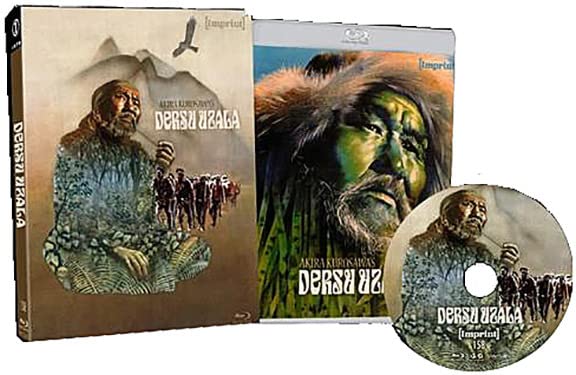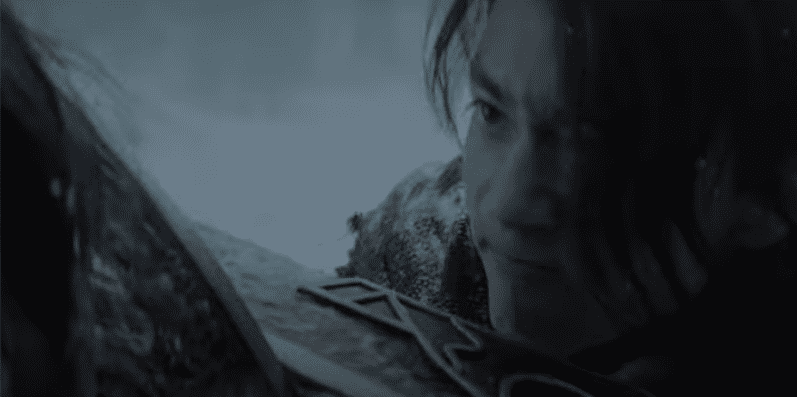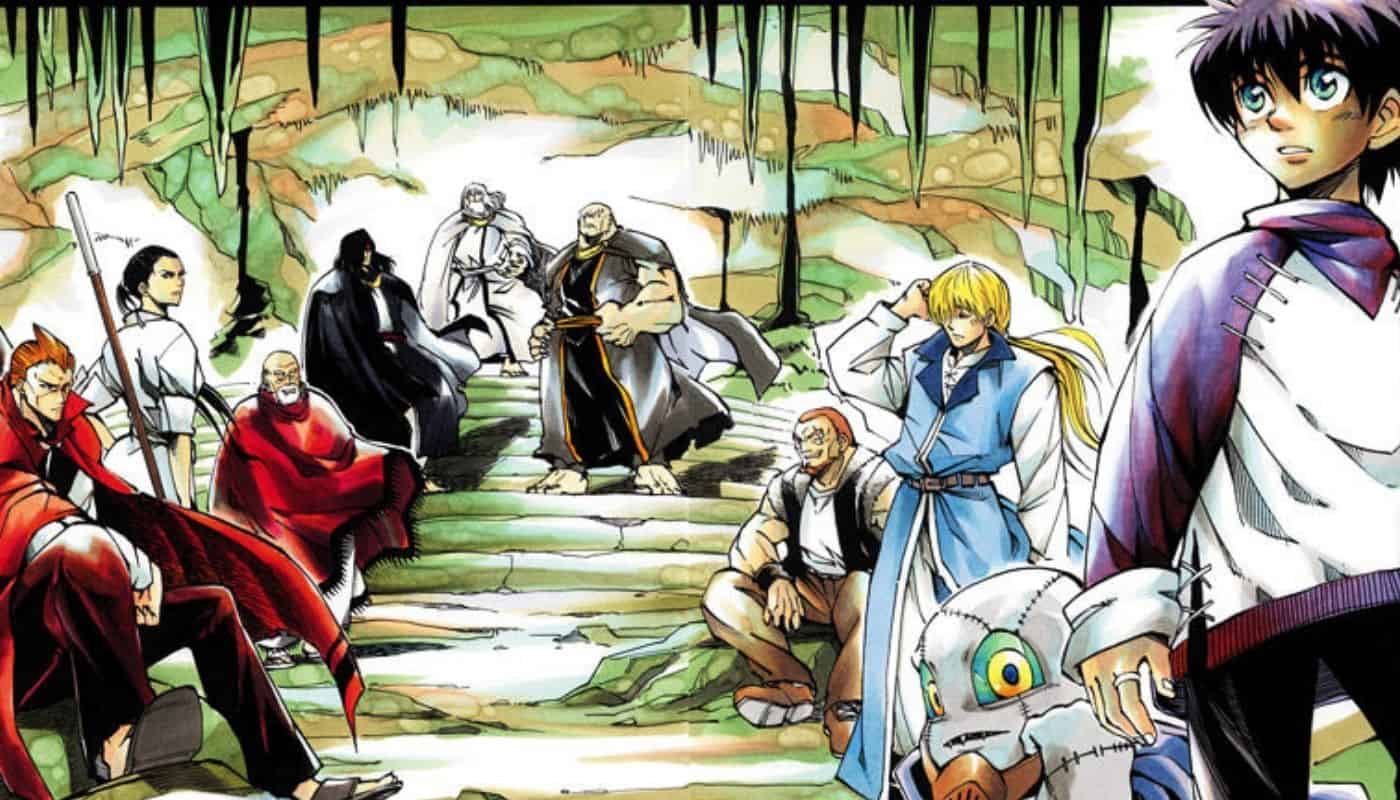The early 1970s marked a torrid time for legendary Japanese filmmaker Akira Kurosawa. Coming off the back of his first outright commercial failure with “Dodes'ka-den” (1970) and having been fired from the Hollywood project “Tora! Tora! Tora!” (1970), the director attempted to take his own life in 1971, miraculously surviving. However, the auteur's fortunes would take a turn the following year, as studio Mosfilm of the Soviet Union offered him the opportunity to adapt V.K. Arsenyev's 1923 memoir “Dersu Uzala”. Having wanted to work with the material earlier in his career, Kurosawa accepted, thus producing one of his most overlooked epics.
The Russian language film follows Captain Vladimir Arsenyev (Yuriy Solomin), a soldier leading a group of men on a topography mission in Imperial Russia's vast Ussuri region. One night, his camp is visited by the nomad hunter, Dersu Uzala (Maksim Munzuk), who lives in the forests leading a solitary life. A master tracker familiar with the land, Dersu joins the captain and his group of hearty explorers, helping them to survive in the harsh wilderness.
A misleading opening sequence sees a suit and tie-wearing Arsenyev wandering through an Ussuri-based building development in 1910 during one of the few scenes where any hint of the civilized world is present. Cut to eight years earlier, the uniformed captain and his men are traversing the same forest with not another soul around for miles on end – well, at least not until Dersu appears. The vastness of the Ussuri wilderness is apparent even at this early stage; Kurosawa's lens focused on seemingly endless waves of luscious green trees. We venture through the seasons several times over, witnessing the fruits of spring and the deathly chills of winter. So immersive is the film, you might find yourself huddling up in your seat as Dersu guides the soldiers over icy terrain.
The forests and hinterlands are characters in and of themselves, ever-present antagonists battling with our band of explorers. Even the simplest mistake could make the difference between life and death; letting a raft run free, losing track of one's footprints, misjudging an encounter with a wild beast. The sequence that captures this battle with nature best – and arguably the film's most impressive scene overall – is Dersu and Arsenyev's race against time to find shelter from an incoming storm. Stranded near a frozen lake and unsure where to turn, the pair frantically gather reeds in a desperate attempt to build cover. This beautiful yet riveting sequence sees the energy sapped from these two men as a bitter storm rages, and the sun slowly sets on the horizon. It's a magnificently orchestrated piece of cinema that serves as one of several instances of man vs nature.
Of course, this war with the wild wouldn't be half as interesting were it not for the central relationship driving the film, that being the brotherly bond between Arsenyev and Dersu. An unlikely pair, the men develop a strong bond based on their shared experiences in the wild. Arsenyev's initial fascination with Dersu turns into genuine admiration for the world-weary nomad. The friendship between the two is built up so gently that you hardly notice yourself getting attached before a sudden parting comes as an emotional gut punch. One might question why Dersu agrees to help the soldiers in the first place. Is it merely for the promise of food and shelter, or does the hunter yearn for companionship in the lonely wild? While we get snippets of Dersu's tragic history, we learn little of the man outside of his interactions with the soldiers. But the past holds little significance in the end, as it's the relationships of the here and now that define Dersu as a character.
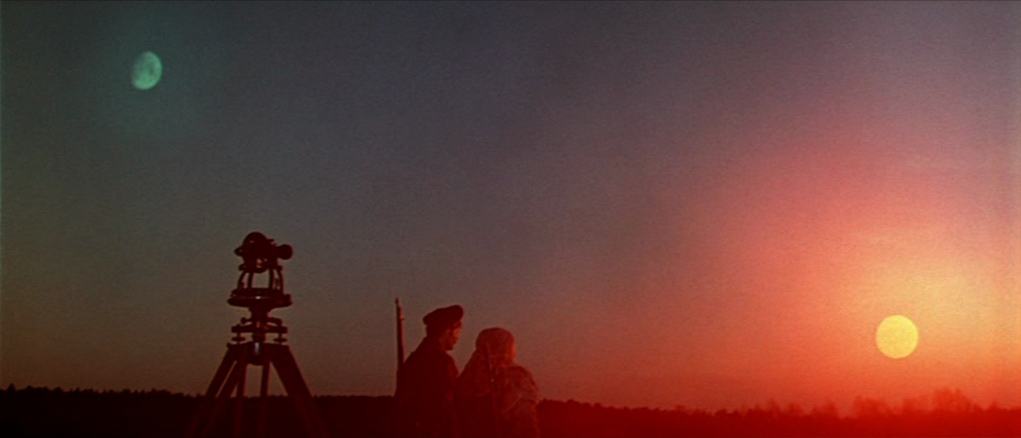
Helping to bring the film's wholesome bromance to life are the performances of Maksim Munzuk and Yuriy Solomin. Sixty-one years old at the time of filming in what was only his second feature-length role, Munzuk is wonderful as the mostly chirpy Dersu; he brings charm and humor to the character, which makes him an instantly appealing figure. However, the actor also plays his part in the film's somber moments, particularly as Dersu reaches a more desolate state towards the climax. Opposite him, Yuriy Solomin's stoic Arsenyev is a mostly quiet observer. That being said, you can often see the cogs turning beneath those stern eyes, the actor's face capturing the emotion of certain moments, whether it be joy, relief, or sadness.
“Dersu Uzala” might not be the most glamorous film in Akira Kurosawa's oeuvre, but it's no less impressive than his later epics. The scale of Arsenyev's journey and the brotherhood between the captain and Dersu are captured deftly by a filmmaker moving into the autumn of his career. Kurosawa takes an already fascinating tale of exploration and delivers a heartfelt picture that not only retains but, in fact, builds upon the filmmaking prowess that elevated him to master status in the first place.


